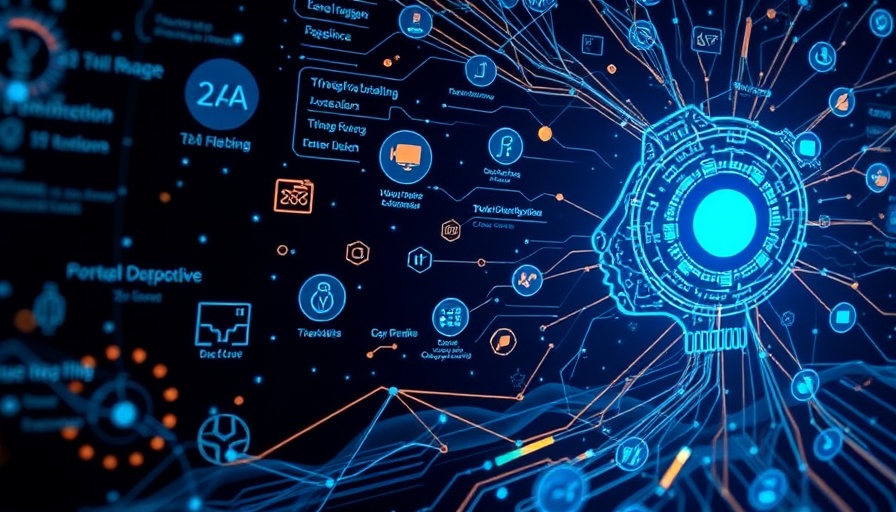
Revolutionizing Industries: The Impact of Generative AI
Generative AI is becoming a game changer across various sectors, providing innovative solutions tailored to real-world challenges. With over 600 documented use cases, organizations are beginning to utilize AI to streamline operations and enhance customer experiences. The recent guide from Google Cloud introduces 101 architectural blueprints aimed at developers and business leaders seeking to kickstart their AI projects.
Understanding the Blueprint: A Breakdown of Use Cases
The guide thoroughly categorizes the blueprints into ten major industries, illustrating how different sectors can harness the power of AI. Notable examples include enhancing the retail experience through unified online and offline platforms, thanks to generative AI's ability to collect and analyze customer data seamlessly. For instance, retailers like Mercari and The Home Depot have integrated these practices to optimize inventory management and improve customer service.
Why Generative AI Matters
The real-world implications of generative AI extend beyond efficiency improvements and cost reductions. These innovations empower businesses to make data-driven decisions, enhancing operational functionality. For example, by employing a tech stack that includes Google Kubernetes Engine and BigQuery, retailers can visualize inventory levels in real time, ultimately increasing customer satisfaction and retention.
Insights from Noteworthy Implementations
Organizations that have successfully implemented these blueprints, such as Unilever, demonstrate that adopting AI tools can lead to significant advancements in productivity and profitability. These technologies push the boundaries of traditional business models, offering scalable solutions that adapt to fluctuating market demands.
Anticipating the Future of AI Adoption
As we continue to observe widespread adoption of machine learning and AI technologies, it prompts the question: What can we expect moving forward? Analysts predict that generative AI will only become more integrated into our daily business practices, driving innovation and shaping new industry standards. Organizations that proactively adopt these technologies stand to gain a competitive edge over those that lag behind.
Take Action: Preparing for the AI Revolution
Now is the time for stakeholders across all industries to consider how generative AI can enhance and innovate their current processes. Whether you are in retail, healthcare, or another sector, assessing your data management strategies in light of these blueprints can foster significant transformation. Start evaluating your tech stack and preparing your teams for an AI-driven future.
 Add Row
Add Row  Add
Add 




Write A Comment